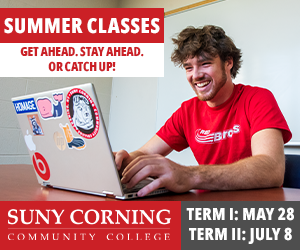It’s time to publicly declare an addiction that many of us suffer from: “My name is Liz, and I have been on Facebook for five years.’
This may seem like a strange way to commemorate the college experience, and yet it is actually very fitting for our ‘wired” generation. So let’s take a trip back into recent history to consider the evolution of this online phenomenon.
In late April 2005, a treasured letter arrived in my mailbox a letter with information about setting up a UR e-mail account. As soon as I configured my mail.rochester.edu account, I rushed to thefacebook.com, wielding my official college e-mail address, to gain access to the elite pages. I finally had access to the coveted and mysterious website, which my older friends (already in college) spoke of in hushed whispers! As a freshman of the class of 2009, I can claim a distinctive title we were the first UR class to gain access to Facebook before we graduated from high school, and the last for which this was something special. A few months after starting college, Facebook opened itself to high school students, companies and regional networks. The elite book of collegiate faces was thrown open to the world.
In those early days, Facebook was something magical. Granted, at that point, the only photo was your profile picture. There were no events. There were no applications. People posted on your wall, but you could only join groups that were part of your college’s specific network (there were a lot duplicate groups for all the different schools). It was simple, but it provided an incredible way to get to know your freshman class before setting foot on the UR campus. Everyone excitedly discussed what they were packing for school and where they would be living. People friended one another based on similar interests, similar housing or just an interest in the profile picture. Words like ‘friended” and ‘facebooked” became common vocabulary for young people. In August 2005, we arrived and made a valiant effort to actually meet everyone on our friends list (how many conversations started with the awkward, “Hi, I think we’re Facebook friends’?). We would hang out in the Hershey’s ice creamery of Hillside, grab lunch at the Mel Express (while watching Bob Barker on ‘The Price is Right”) or get an Oreo milkshake from the Common Ground. We registered for classes and then immediately listed those courses on our profiles to know who would be in each class. Photo albums were added during winter 2005, thus beginning an uploading frenzy.
Facebook continued to change as the UR campus has changed. In fall 2006, the news feed and mini feed were introduced for the first time, and there was a global uproar as people realized that their stalking tendencies would be publicized. In fall 2007 on campus, the old Hive/Mel Express and Common Ground were replaced by Starbucks and a new Hive. Upperclassmen mourned. In spring 2008, Facebook introduced the chat function, thus making AIM obsolete. In fall 2008, the Riverview Apartments were completed and hundreds of seniors moved into the fancy new dorm across the river. During the 2009-10 year, UR introduced a life-sized George Eastman to campus, and Facebook forced users to change to a new layout.
OK, so the parallels are not precise, but Facebook has truly come to define social life in college. It enables us to interact with people whom we’ve never met in person and to stay in touch with friends who might live far away. Its photo albums and tagging functions allow us to capture and share our favorite moments. Fliers have become obsolete, as no social or entertainment event would be complete without a Facebook event. Profiles allow us to get a quick glimpse into our friends and might help us remember who likes what music or who someone’s favorite author is. (A sad fact is that no one remembers birthdays anymore, unless they are on Facebook.) This social network is a handy tool, and we’ve become ridiculously reliant on it.
As a freshman, I remember wondering what I would do with my Facebook account once I graduated. Would my future co-workers also have accounts? Would my boss try to friend me? Or would I just stop using it completely the more I moved away from college life and thus lose touch with a lot of people whom I was friends with?
Through Facebook, we now have a tool for keeping those friendships alive, in ways that our parents’ generation never dreamed. With the click of a button, you can browse through old memories, documented in photo albums and posting exchanges, and with another click, you can post a note to that old friend or message him or her to chat. While a social network is no replacement for meeting in person, it makes parting a fraction more bearable.
I have a feeling I won’t be breaking my addiction any time soon.
Gabster is Take Five Scholar.





